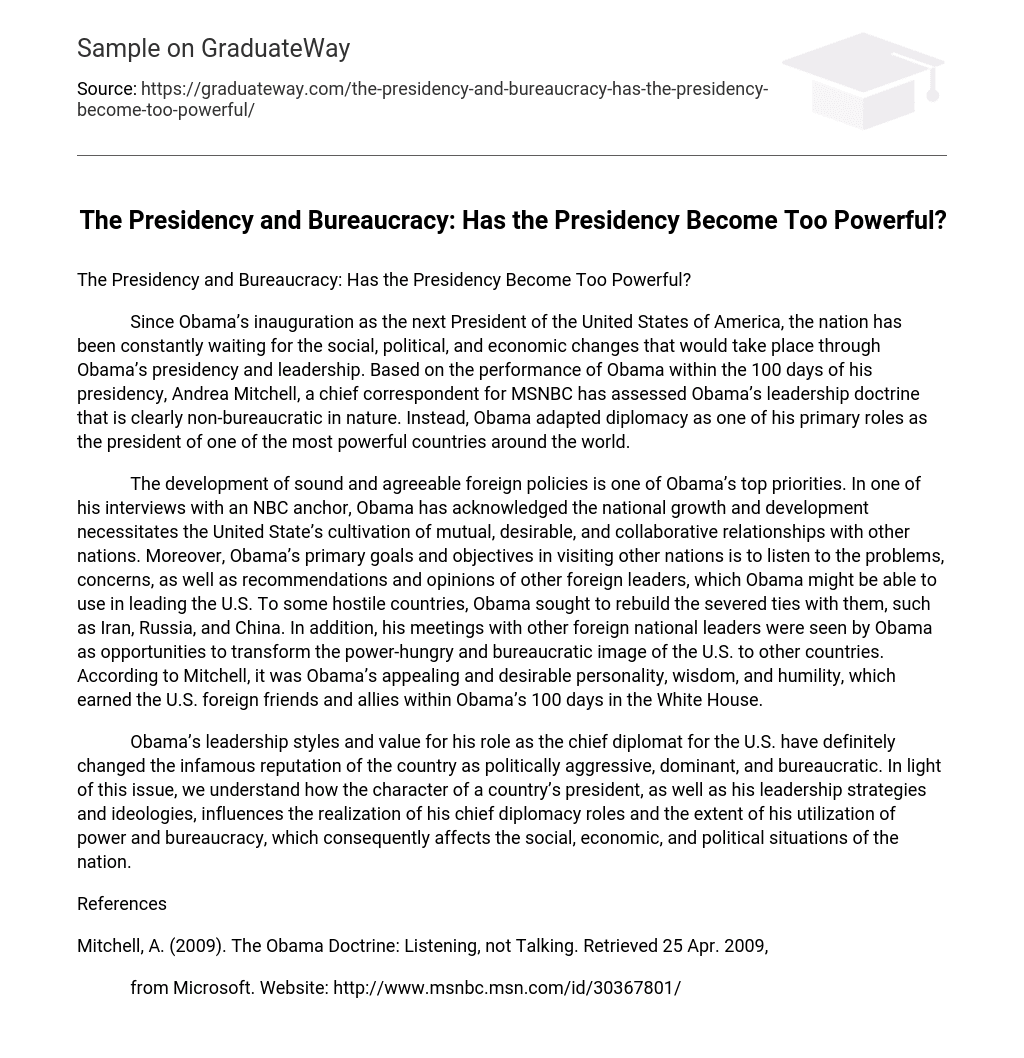Since Obama’s inauguration as the next President of the United States of America, the nation has been constantly waiting for the social, political, and economic changes that would take place through Obama’s presidency and leadership. Based on the performance of Obama within the 100 days of his presidency, Andrea Mitchell, a chief correspondent for MSNBC has assessed Obama’s leadership doctrine that is clearly non-bureaucratic in nature. Instead, Obama adapted diplomacy as one of his primary roles as the president of one of the most powerful countries around the world.
The development of sound and agreeable foreign policies is one of Obama’s top priorities. In one of his interviews with an NBC anchor, Obama has acknowledged the national growth and development necessitates the United State’s cultivation of mutual, desirable, and collaborative relationships with other nations. Moreover, Obama’s primary goals and objectives in visiting other nations is to listen to the problems, concerns, as well as recommendations and opinions of other foreign leaders, which Obama might be able to use in leading the U.S. To some hostile countries, Obama sought to rebuild the severed ties with them, such as Iran, Russia, and China. In addition, his meetings with other foreign national leaders were seen by Obama as opportunities to transform the power-hungry and bureaucratic image of the U.S. to other countries. According to Mitchell, it was Obama’s appealing and desirable personality, wisdom, and humility, which earned the U.S. foreign friends and allies within Obama’s 100 days in the White House.
Obama’s leadership styles and value for his role as the chief diplomat for the U.S. have definitely changed the infamous reputation of the country as politically aggressive, dominant, and bureaucratic. In light of this issue, we understand how the character of a country’s president, as well as his leadership strategies and ideologies, influences the realization of his chief diplomacy roles and the extent of his utilization of power and bureaucracy, which consequently affects the social, economic, and political situations of the nation.
References
Mitchell, A. (2009). The Obama Doctrine: Listening, not Talking. Retrieved 25 Apr. 2009,
from Microsoft. Website: http://www.msnbc.msn.com/id/30367801/





